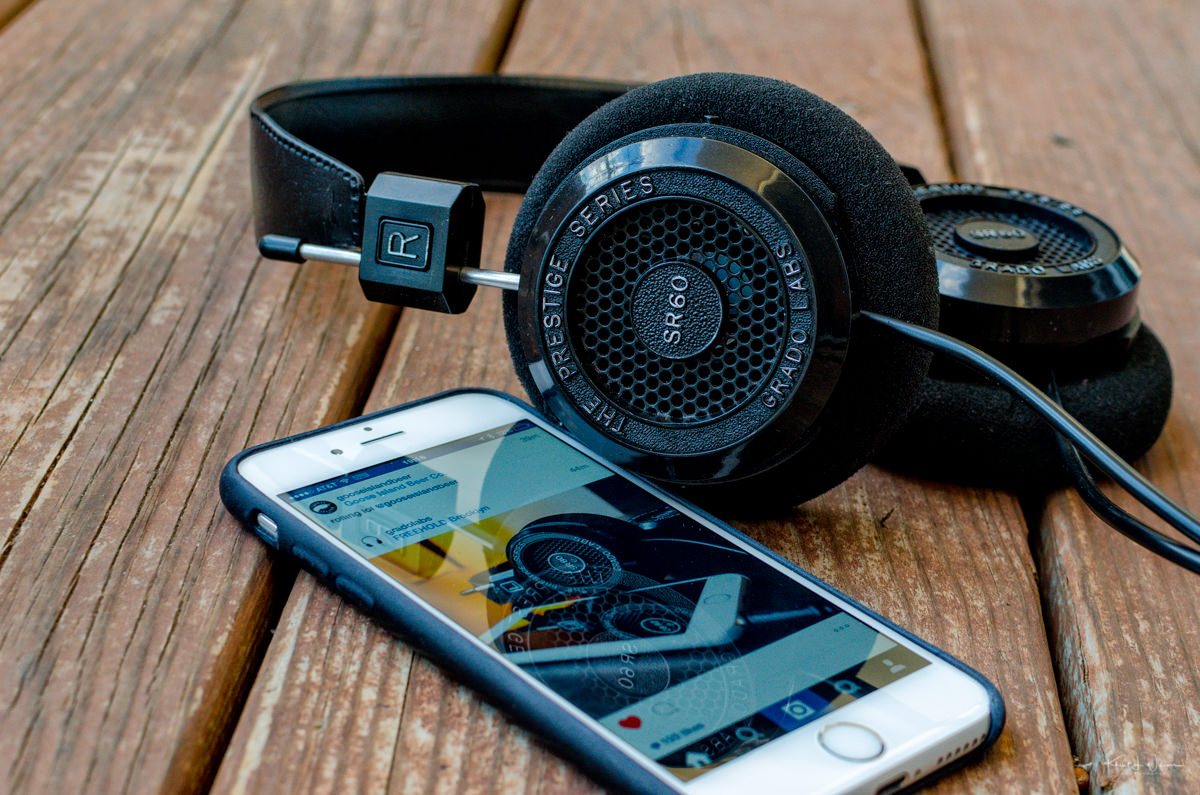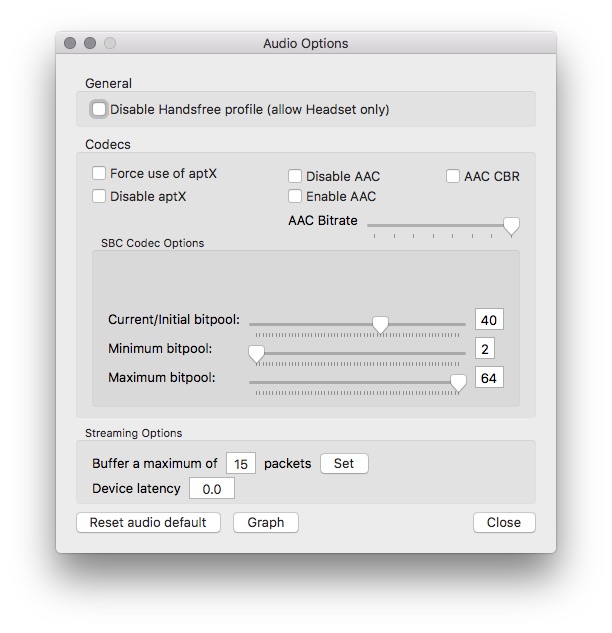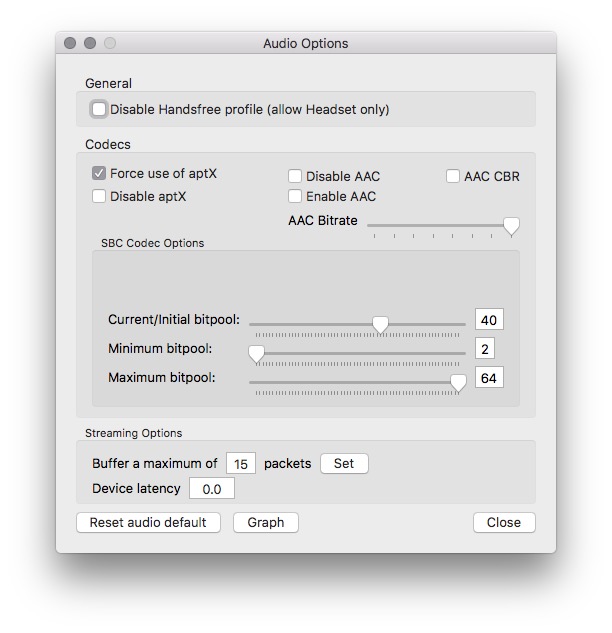Earphones do NOT work for me. Regardless of brand I, and all the members of my household find them uncomfortable. I can’t wear them for more than a few minutes. The Apple EarBuds/EarPods were particularly painful to wear. My ear canal always needed a message right after an extended listening session. With each new iPhone purchase, we leave the earphones in the box. Everyone in the house has a set of over the ear headphones.
One of the big downsides of most Bluetooth headphones is having to charge them just when you need to use them and the lack of removable batteries.
My old cans, the Harmon Kardon BT take a long time to charge. With age, the internal battery has lost its ability to keep a charge. The charge is only good for a few hours where before they could last almost a whole day. I have resorted to using the cord and needing a 3.5mm jack.
The headphones support AAC (used by Apple) and aptX coding. H/K wanted to make sure the best wireless audio performance possible from a Bluetooth-equipped device. I bought them two years ago because I was sure that the iPhone 6 would support aptX. Plenty of Samsung, HTC, and Motorola phones have it, as well as many Bluetooth speakers and headphones. Cleary, the industry was getting behind aptX1.
Apple decided, against industry trends, to go their way. No Apple mobile2 product supports aptX. And it seems they never will.
 Using aptX with my H/K Bluetooth headphones on the Mac.
The default codec for compressing A2DP audio is the relatively simple SBC codec. However, after searching online, I found out that the Mac product line supports AAC over Bluetooth as well as aptX. It’s just not enabled by default. Assuming the Bluetooth device is capable of receiving the AAC and aptX signal you can enable the feature via Apple’s Bluetooth Explorer tool. Unfortunately, Bluetooth Explorer is not part of MacOS. You’ll need an Apple developer account to download the software.
I tested Bluetooth audio with the H/K BT using AAC and aptX while listening to Vivaldi’s Four Seasons Concerto No. 1 in E Major Op. 8 No. 1 performed by the London Philharmonic Orchestra conducted by Itzhak Perlman. While not a scientific test, I found the aptX audio to be cleaner. I also noticed that the AAC audio was limited to 220kbps while the aptX audio was 320 kbps.
Why am I bringing all of this up now?
A few weeks ago, after over two years of service, I accidentally and permanently damaged my iPhone 6. The warranty and damage insurance had also expired. There was no way to bring the device back to life.
I reluctantly replaced my iPhone 6 with an iPhone 7. I briefly considered buying an iPhone 6S, but I wanted to keep up my trend of buying the “tick.” The 6S would have been the “tock.”
I was born in 1966. I was ten years old during the golden age of the 1970’s Hi-Fi (High Fidelity) movement. My father was a Hi-Fi fanatic. He spent hours fine tuning his equip and doing listening tests. He had tube amplifiers and MOSFET amplifiers. He had a Linn Sondek turntable and NAD pre-amps. Brands like Marantz, Technics, Denon, and Quad — Hi-Fi royalty — were members of the family. He even installed a voltage regulator to ensure that the electric supply never deviated more than a few millivolts from the standard. If I grew up knowing how good music can sound why I would settle for average?
To my ear, the audio quality over Bluetooth is not as good as over the wire. Just because the majority of consumers are tone-deaf and have been trained to enjoy the sound quality of MP3 audio does not mean that I can’t appreciate quality audio (high bit rate AAC) or hear the difference. And there is a difference.
I have used the H/K BT often since buying the iPhone 7. Apple included a Lighting to 3.5mm adapter in the box but the DAC in the adapter is not capable of driving the units in the H/K. The dongle DAC is underpowered.
So … I can’t use the aptX capability of my current Bluetooth headphones with my iPhone 7, they don’t keep a charge, the Lightning adapter DAC is underpowered, and earphones don’t fit my ear.
What’s the solution?
 Image CC0 by Michael MroczekI love my Grado SRS60e headphones. They were not expensive, but the sound quality is fantastic. I wear them when I have an extended photo editing session at the iMac or just when I want the best sound possible from any source. They sound incredible.
However, they have a 3.5 mm jack. The newest MacBook Pro ships with a 3.5mm port, but future iMacs — the only Mac I care about — may not have 3.5mm ports. They may ship with USB-C ports only. There is no guarantee that I would be able to find a quality USB-C to 3.5mm jack adapter.
I want an updated Grado SRS60 (or 80). Let’s call it the Grado SRS60bt. The "bt" indicates that they are Bluetooth headphones with support for the playback of AAC CBR 320kbs audio3. The Grado SRS60bt have a built-in high-quality DAC. They have a USB-C port with a removable cable so that I can use them with a 3.5 mm jack or a Lightning port or USB-C port. The DAC de-activates itself when the audio source is analog. The Grado SRS60bt charge when I plug them into the Lightning port, so listening and charging are not separate events. They have a removable battery so that when they no longer hold a charge, I can replace them, thereby extending the life of the Grado SRS60bt. I don’t mind spending up to $300 because these are headphones — like my current Grado’s — that should be with me for a long time.
Am I asking for too much?
* * *
1. Despite Qualcomm's claim, aptX is not CD quality. But it is currently the best available audio quality than one can attain over Bluetooth. [?](#fnref-24230-1)
2. Oddly the iMac and MacBook line support aptX. But it’s not easy to [enable](http://www.digitalaudioreview.net/2016/01/how-to-enable-aptx-bluetooth-audio-on-your-macbook-imac/). [?](#fnref-24230-2)
3. I have no hope that Apple will ever support aptX. Apple may introduce their proprietary technology that meets or exceeds aptX, but I want nothing to do with that. [?](#fnref-24230-3)






